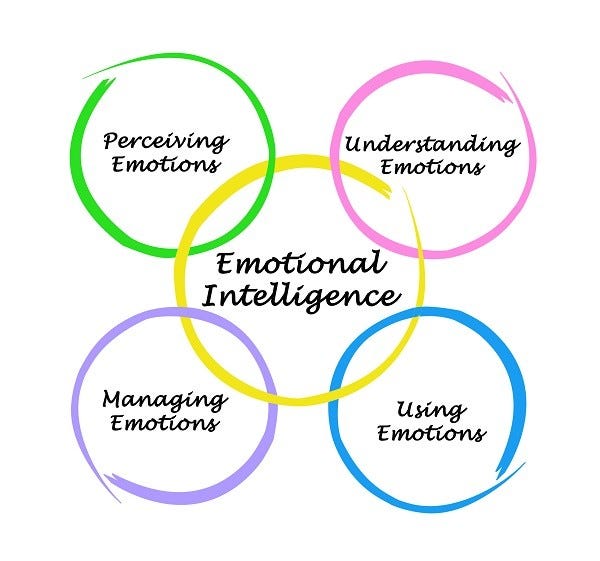Emotions: these mysterious forces that shape our lives, influencing our thoughts, actions, and overall well-being. They can lift us up to the heavens or drag us down into the depths of despair. As human beings, we are no strangers to the power of emotions, but how well do we truly understand and manage them?
In the journey of self-discovery and personal growth, one aspect that often gets overlooked is emotional intelligence. It is the ability to recognize, understand, and manage our emotions, as well as empathize with and influence the emotions of others. Emotional intelligence affects every aspect of our lives, from our relationships and careers to our own mental health.
Growing up, I never really gave much thought to emotions. They were just something I experienced, almost like random surges of energy that took control of me. It wasn’t until a few years ago that I realized the impact emotions were having on my life. I found myself easily overwhelmed by stress, unable to effectively communicate with others, and consistently making impulsive decisions. I knew something had to change.
It was during this period of self-reflection that I stumbled upon the concept of emotional intelligence. Intrigued, I delved deeper into understanding the inner workings of emotions and how they could be harnessed for personal growth and success. I discovered that emotional intelligence is not just an innate talent but a skill that can be cultivated and honed with practice.
The first step in developing emotional intelligence is self-awareness. This involves paying attention to our own emotions, understanding what triggers them, and recognizing the impact they have on our thoughts and actions. For me, this meant taking the time to pause and reflect on the emotions I was experiencing, rather than reacting impulsively. It was about asking myself, “Why am I feeling this way? What is causing this emotion?” This simple act of self-reflection helped me gain clarity and control over my emotional responses.
Once we become aware of our own emotions, the next step is self-regulation. This involves managing our emotions in a way that is both constructive and beneficial. It is about finding healthy outlets for our emotions, such as through journaling, exercising, or talking to a trusted friend. For me, I found solace in writing. Putting pen to paper allowed me to express my emotions in a safe and non-judgmental way. I also learned the importance of taking breaks when needed, giving myself permission to step away from a situation that was causing heightened emotions until I felt more centered and in control.
But emotional intelligence is not just about understanding and managing our own emotions; it is also about empathizing with others and fostering healthy relationships. This is where social awareness and relationship management come into play. Social awareness involves being attuned to the emotions of those around us, understanding their perspectives, and showing empathy. It is about actively listening and striving to understand, rather than judging or dismissing others’ emotions. Relationship management, on the other hand, involves utilizing our emotional intelligence to navigate and nurture relationships effectively. This includes effective communication, conflict resolution, and motivating and inspiring others.
Developing emotional intelligence has had a profound impact on my life. It has enabled me to navigate challenging situations with greater ease and grace. Rather than being controlled by my emotions, I am now able to process them and respond in a way that aligns with my values and goals. I have also experienced more fulfilling and authentic relationships, as I have become more attuned to the emotions of those around me and better equipped to communicate and connect with them.
In a world that often emphasizes achievements and accomplishments, emotional intelligence is a vital yet often underestimated skill. It is what sets apart good leaders from great leaders and allows individuals to thrive in both personal and professional settings. It is the key to understanding ourselves and others on a deeper level, fostering healthier relationships, and ultimately leading a more balanced and fulfilling life.
So, let us embark on this journey of emotional intelligence together. Let us unravel the complexities of our emotions, develop self-awareness and self-regulation, and cultivate empathy and relationship management. By doing so, we can harness the power of our emotions for personal growth and create a ripple effect of positive change not only within ourselves but also in the world around us.
